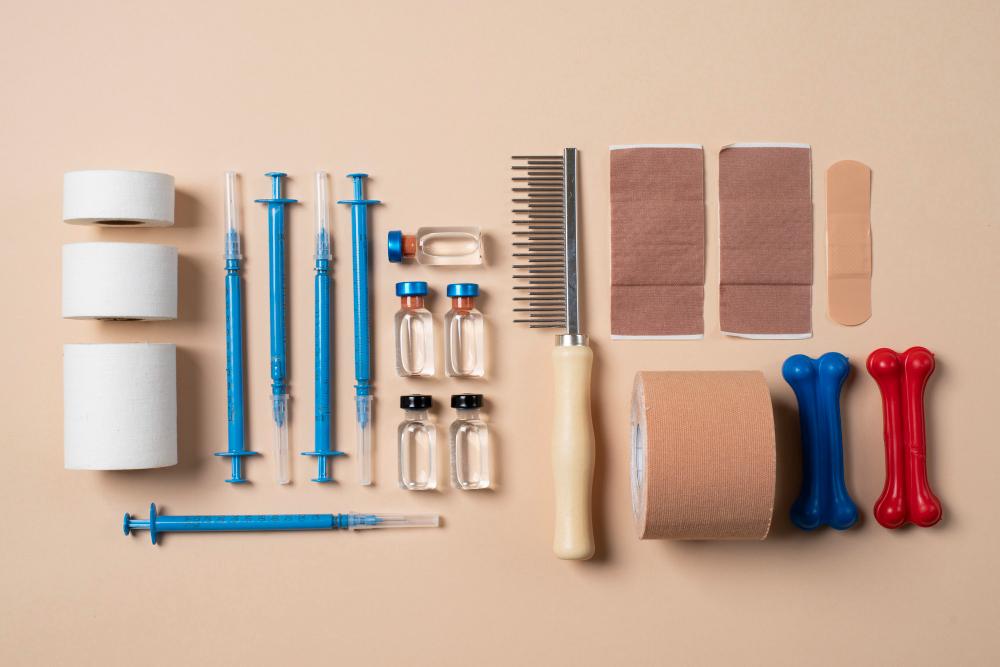Wound Care Products: Your Complete Guide to Healing Essentials

Injuries are an inevitable part of life. From minor scrapes and burns to surgical wounds and chronic ulcers, all wounds require proper care to prevent infection and encourage healing. That’s where wound care products come into play. These products are designed to cleanse, protect, and heal damaged skin effectively, reducing discomfort and complications.
In this article, we’ll explore the different types of wound care products, their functions, and how to choose the right items for your needs.
What Are Wound Care Products?
Wound care products include any materials or treatments used to manage and heal wounds. Their main goals are to:
-
Clean the wound
-
Prevent infection
-
Maintain moisture balance
-
Promote tissue repair
-
Reduce pain and scarring
Whether you're treating a cut at home or managing a post-surgical incision, the right wound care supplies are essential for effective recovery.
Common Types of Wound Care Products
1. Antiseptics and Cleansers
These are the first step in wound care. They help eliminate bacteria and contaminants. Popular options include:
-
Hydrogen peroxide
-
Iodine-based solutions
-
Saline sprays
-
Antiseptic wipes
2. Gauze Pads and Dressings
Gauze helps absorb fluids and protect the wound. Dressings vary based on wound type:
-
Non-stick pads for open wounds
-
Hydrocolloid dressings for moist healing
-
Foam dressings for wounds with heavy discharge
-
Hydrogel sheets for burns and painful wounds
3. Adhesive Bandages
For minor cuts and scrapes, adhesive bandages are the most convenient. They come in various sizes and styles, including waterproof and breathable options.
4. Medical Tapes
Used to secure gauze and dressings in place, medical tapes can be hypoallergenic, waterproof, or breathable depending on the need.
5. Antibiotic Ointments and Creams
These help prevent infection and speed up healing. Common examples include:
-
Bacitracin
-
Neosporin
-
Silver sulfadiazine (for burns)
6. Silicone Gel Sheets and Scar Gels
These products help reduce scar formation and are especially useful after surgery or for healing raised scars.
Specialized Wound Care Products
Some wounds require more advanced or targeted care. These include:
For Diabetic Ulcers
Wound dressings for diabetic patients are designed to enhance moisture control, prevent infection, and promote circulation.
For Burns
Burn gels and dressings are cooling, pain-relieving, and help soothe inflamed skin. Aloe vera, silver-infused dressings, and hydrogel pads are commonly used.
For Sensitive Skin
Hypoallergenic tapes, gentle adhesives, and natural ointments are recommended for individuals with skin sensitivities or allergies.
Natural and Herbal Wound Care Options
In addition to conventional treatments, natural wound care products are gaining popularity. Ingredients like manuka honey, aloe vera, tea tree oil, and calendula offer antibacterial and anti-inflammatory benefits with minimal side effects.
These products are ideal for individuals seeking chemical-free healing methods or complementary care options.
How to Choose the Right Wound Care Products
Selecting the appropriate wound care items depends on:
-
Type of wound (cut, burn, ulcer, surgical, etc.)
-
Wound size and depth
-
Amount of drainage
-
Infection risk
-
Skin sensitivity
-
Location of wound on the body
When in doubt, consult with a healthcare professional for proper wound evaluation and treatment recommendations.
Building a Basic Wound Care Kit
Every home should be equipped with a basic wound care kit. Essentials include:
-
Antiseptic wipes or solution
-
Adhesive bandages in assorted sizes
-
Sterile gauze pads
-
Medical tape
-
Antibiotic ointment
-
Burn cream or gel
-
Tweezers and scissors
-
Disposable gloves
-
Pain relief spray or cream
Having these items readily available can make handling emergencies easier and more effective.
Conclusion
Wound care products are essential for treating injuries effectively and promoting faster, safer healing. From basic first-aid supplies to advanced dressings for complex wounds, the right tools can prevent infections, reduce pain, and improve overall outcomes. By understanding your options and having the right products on hand, you can handle everyday wounds with confidence and care.
- Art
- Causes
- Crafts
- Dance
- Drinks
- Film
- Fitness
- Food
- Spellen
- Gardening
- Health
- Home
- Literature
- Music
- Networking
- Other
- Party
- Religion
- Shopping
- Sports
- Theater
- Wellness
